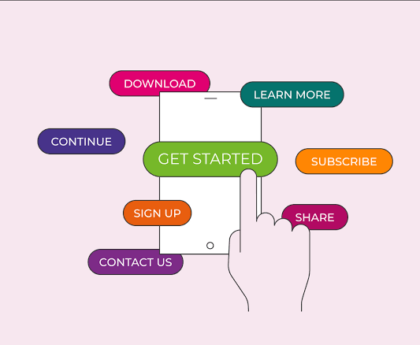
Content Marketing Decoded: Past Lessons, Present Trends & Future Insights
Content marketing has revolutionised brand engagement over the years. From traditional advertising to AI-driven personalisation, the landscape continues to evolve.
In this blog, we explore the transformation of content marketing, its current trends, and what the future holds. Learn how businesses leveraged print ads in the past, the rise of digital storytelling, and how AI and automation are shaping the future of content marketing.
Whether you’re a marketer, entrepreneur, or content strategist, staying ahead of trends is crucial.
Discover the key shifts in audience behaviour, the role of SEO, and why data-driven strategies are the future. Want to future-proof your strategy? Read on to uncover the secrets of successful content marketing.
Table of Contents
- The Content Marketing Revolution: From Print To AI-Powered Strategies
- The Past: The Foundations Of Content Marketing
- The Present: Digital Transformation & Consumer-Centric Approach
- The Future: AI, Personalization & The Next Era Of Content Marketing
- Conclusion: Future-Proofing Your Content Marketing Strategy
The Content Marketing Revolution: From Print To AI-Powered Strategies

Over the years, content marketing has undergone a radical transformation. What started as simple storytelling in print advertisements has now evolved into a data-driven, AI-powered strategy that connects brands with consumers like never before. Businesses today are investing heavily in content marketing to build brand authority, boost engagement, and drive conversions.
But how did we get here? More importantly, what does the future hold for marketers? Understanding the evolution of content marketing can help brands adapt, innovate, and stay ahead in an increasingly competitive digital landscape.
Let’s take a deep dive into the past, present, and future of content marketing.
The Past: The Foundations Of Content Marketing
How Traditional Advertising Paved the Way
Long before digital media took over, brands relied on print ads, radio, and television to tell their stories. The first known example of content marketing dates back to 1895 when John Deere published The Furrow, an agricultural magazine providing valuable farming insights. This was one of the earliest cases where brands prioritized educating their audience rather than direct selling.
In the 20th century, brands like Coca-Cola and Michelin expanded the concept by producing content that added value to consumers’ lives. The Michelin Guide, for example, was initially created to encourage automobile use by providing travel tips—a strategy that subtly boosted tire sales.
The Rise of Storytelling in Marketing
By the late 1900s, brands realised that emotional storytelling had a greater impact than hard-selling tactics. Television ads, radio jingles, and magazine features focused on engaging consumers rather than pushing products. This shift laid the groundwork for today’s content marketing strategies, where providing value is key to building trust.
The Present: Digital Transformation & Consumer-Centric Approach
SEO, Social Media & the Shift to Digital
The internet changed everything. With the rise of Google, SEO became a crucial part of content marketing. Marketers had to create content that not only resonated with audiences but also ranked high on search engines. Blogs, articles, and video content became primary tools for engagement.
Social media platforms like Facebook, Instagram, and LinkedIn further revolutionised the space. Brands could now interact directly with their audiences, fostering real-time engagement and feedback. Influencer marketing also emerged as a dominant force, with content creators shaping purchasing decisions.
Data-Driven Marketing & Personalisation
Modern content marketing is heavily influenced by data analytics. Marketers now track user behavior, engagement rates, and preferences to create highly targeted content. Personalization has become the gold standard—brands that deliver content tailored to individual preferences see higher conversion rates and brand loyalty.
The Rise of Video & Interactive Content
Today, video content dominates online platforms. YouTube, TikTok, and Instagram Reels have changed how users consume content. Short-form videos, live streams, and interactive content like quizzes and polls have redefined audience engagement.
The demand for authenticity is at an all-time high. Consumers prefer brands that tell real, relatable stories rather than overly polished advertisements. This is why user-generated content and brand collaborations are thriving.
The Future: AI, Personalisation & The Next Era Of Content Marketing
AI-Driven Content & Automation
Artificial intelligence (AI) is shaping the future of content marketing. AI-powered tools like ChatGPT and Jasper are helping brands automate content creation, personalisation, and customer interactions. Marketers can now generate SEO-optimized blogs, product descriptions, and social media captions in seconds.
AI-driven chatbots and voice search optimization are also becoming essential. With the rise of smart assistants like Alexa and Siri, brands must create content that aligns with voice search trends.
Hyper-Personalisation & Predictive Analytics
The future of content marketing is all about hyper-personalisation. Predictive analytics allows brands to anticipate consumer needs even before they arise. By analyzing past behavior, AI can suggest products, services, or content tailored to individual users.
Email marketing is also evolving with dynamic, AI-powered personalization. Instead of generic newsletters, consumers receive hyper-targeted messages based on their preferences and browsing history.
The Metaverse & Immersive Experiences
With the rise of the Metaverse, brands will shift towards virtual and augmented reality experiences. Imagine trying on makeup virtually before purchasing or attending a virtual fashion show. This new era of content marketing will redefine how consumers interact with brands.
Conclusion: Future-Proofing Your Content Marketing Strategy
The evolution of content marketing shows that staying ahead requires adaptability. From print ads to AI-driven automation, the landscape has continuously evolved, favoring those who embrace change.
To thrive in the future, marketers must:
✔ Stay updated with AI and automation tools
✔ Focus on data-driven personalization
✔ Leverage video and interactive content
✔ Optimize for voice search and emerging technologies
Are you ready to elevate your content marketing strategy? The future is now—start adapting today!





